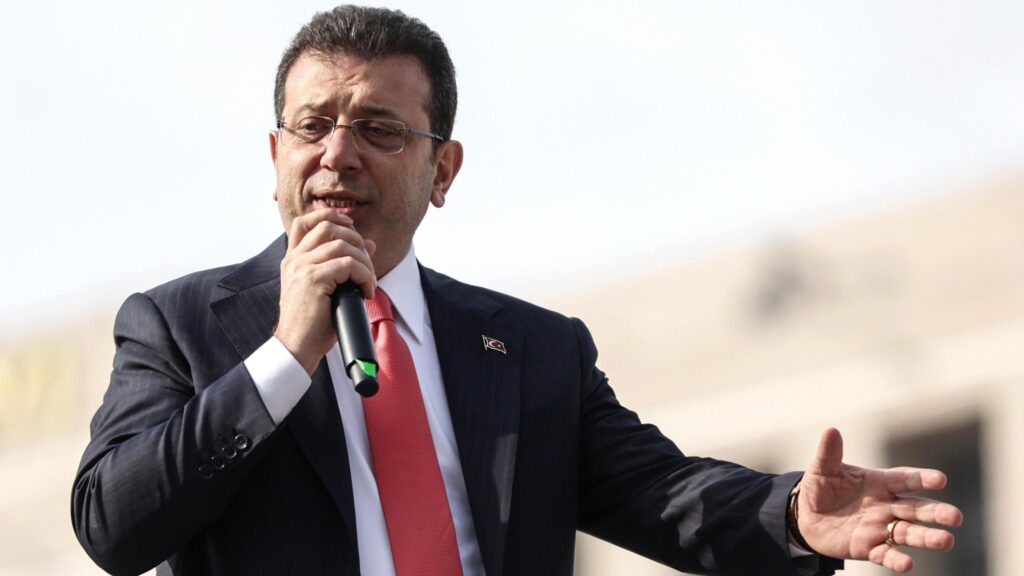In a significant escalation of tensions in Turkey’s political landscape, authorities have seized the Istanbul headquarters of the main opposition party, the Republican People’s Party (CHP), amid a heavy police presence. The raid, which has sparked widespread condemnation from opposition leaders and human rights organizations, underscores deepening concerns over the erosion of democratic freedoms in the country. This dramatic move comes on the heels of a contentious electoral period and raises critical questions about the future of dissent and political expression in Turkey. As the CHP mobilizes its supporters in response, the incident marks a pivotal moment in the ongoing struggle for democracy and accountability in one of the region’s most influential nations.
Turkish Opposition Faces Challenges as Istanbul Headquarters Seized by Police
In a significant escalation of tensions between the Turkish government and opposition forces, law enforcement authorities have executed a police operation resulting in the seizure of the main opposition party’s headquarters in Istanbul. This move, perceived by many as a crackdown on political dissent, has sparked widespread protests and raised serious concerns regarding the state of democracy in Turkey. The immediate aftermath has seen numerous party members and supporters rallying outside the premises, voicing their defiance against what they describe as governmental overreach. Critics argue that this action is part of a broader strategy to stifle opposition voices leading up to the upcoming elections, with freedoms increasingly being curtailed under the pretext of maintaining public order.
As the situation unfolds, the impact on opposition unity and strategy remains uncertain. Party leaders have indicated their intention to resist, calling for solidarity among citizens to protest against the police occupation. Key challenges faced by the opposition include:
- Loss of Headquarters: The seizure limits access to critical organizational infrastructure.
- Increased State Pressure: Anticipation of further crackdowns on dissenting voices and political gatherings.
- Public Sentiment: Navigating the rapid shift in public opinion regarding the government’s actions.
Impact of Police Seizure on Democratic Processes in Turkey
The recent police seizure of the opposition’s headquarters in Istanbul has raised serious concerns regarding the state of democratic practices in Turkey. This event has not only heightened tensions between the ruling party and its opponents, but it also signals a troubling trend of diminishing political freedoms. The incident exemplifies the tactics often employed by authorities to undermine opposition voices, fostering apprehension among citizens about the security and integrity of their democratic rights. Analysts argue that such actions undermine the political environment by creating an atmosphere of fear and repression, discouraging civic engagement and dissent.
Moreover, the implications of this seizure extend beyond a singular event; they reflect a broader pattern of systematic repression. Key impacts include:
- Erosion of Trust: Public confidence in democratic institutions is waning as citizens witness the marginalization of opposition voices.
- Stifling of Dissent: Increased police presence at key political sites stifles the ability of opposition parties to organize freely.
- Polarization: The polarized political landscape is exacerbated as such actions serve to deepen divisions among the populace.
| Impact | Description |
|---|---|
| Public Discontent | Growing dissatisfaction with the government’s authoritarian approach. |
| International Scrutiny | Increased attention from foreign governments and organizations monitoring human rights. |
| Mobilization of Supporters | Potential rallying effect for opposition activists, despite repressive tactics. |
Strategies for the Opposition to Rebuild and Fortify Political Presence in Istanbul
In the wake of the recent seizure of the opposition’s Istanbul headquarters, strategies must be implemented to not only regain ground but also to strengthen their political presence in the city. Engagement with local communities is paramount; grassroots movements can galvanize support and foster a sense of unity amongst constituents. This could involve organizing town hall meetings, community forums, and workshops that both inform and involve citizens in political discourse. Furthermore, leveraging social media platforms effectively will allow the opposition to disseminate messages quickly and reach a broader audience, enhancing their visibility and responsiveness to public concerns.
To bolster their political infrastructure, the opposition should consider forming strategic alliances with civic organizations and NGOs that advocate for democracy and civil rights. Such partnerships can amplify voices and mobilize volunteers, especially among the youth and disenfranchised demographics. A well-structured plan could include:
| Key Strategy | Action Steps |
|---|---|
| Community Engagement | Host forums, town halls, and workshops |
| Social Media Utilization | Create viral campaigns, share real-time updates |
| Collaboration | Partner with NGOs, form coalitions |
| Grassroots Movements | Mobilize volunteers for local initiatives |
These approaches, combined with a resilient leadership that prioritizes transparency and accountability, will help the opposition not only reclaim their lost ground but also cultivate a robust political ecosystem that can withstand challenges in the future.
Concluding Remarks
In conclusion, the seizure of the Turkish opposition’s Istanbul headquarters under police guard marks a significant escalation in the ongoing tensions between the government and its political adversaries. This operation has raised urgent questions about the state of democracy and political freedoms in Turkey, as opposition leaders voice concerns over suppression and intimidation tactics. As the situation unfolds, the implications for Turkey’s political landscape and its civil society remain critical. The international community will undoubtedly be watching closely, as these developments could have far-reaching consequences for the future of political dissent in the country. For now, the road ahead remains uncertain, with the opposition vowing to continue its fight for democratic principles and accountability.
